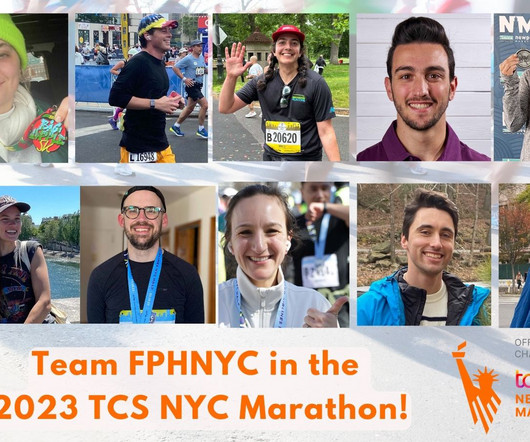Vast bubble of galaxies discovered, given Hawaiian name
Science Daily: Pharmacology News
SEPTEMBER 5, 2023
The immense bubble is 820 million light years from Earth and believed to be a fossil-like remnant of the birth of the universe.

Science Daily: Pharmacology News
SEPTEMBER 5, 2023
The immense bubble is 820 million light years from Earth and believed to be a fossil-like remnant of the birth of the universe.

Fund for Public Health NYC
SEPTEMBER 5, 2023
On November 5 th , 2023, just 2 months away, a group of dedicated individuals is lacing up their running shoes and joining team FPHNYC to make a difference that goes far beyond the finish line. Their motivation isn’t solely driven by personal records – it’s fueled by a commitment to raising funds and awareness for causes that align with FPHNYC’s mission to improve the health of all New Yorkers.
This site is protected by reCAPTCHA and the Google Privacy Policy and Terms of Service apply.

Science Daily: Pharmacology News
SEPTEMBER 5, 2023
Right at the bottom of the deep sea, the first very simple forms of life on earth probably emerged a long time ago. Today, the deep sea is known for its bizarre fauna. Intensive research is being conducted into how the number of species living on the sea floor have changed in the meantime. Some theories say that the ecosystems of the deep sea have emerged again and again after multiple mass extinctions and oceanic upheavals.

Frontiers
SEPTEMBER 5, 2023
In August this year, Marie Soulière, senior publishing manager at Frontiers , featured in closing keynote discussion at the annual FORCE11 Scholarly Communication Institute. She was joined by leading voices from the Allen Institute for AI , the University of Washington , the São Paulo Research Foundation and the University of Manchester. Here are some of her personal reflections.

Science Daily: Pharmacology News
SEPTEMBER 5, 2023
Researchers report that the flexible shoulders and elbows that allow us to throw a football or reach a high shelf may have evolved as a natural braking system that let our primate ancestors get out of trees without dying. The researchers used sports-analysis software to compare the climbing movements of chimpanzees and small monkeys called mangabeys.

Gideon
SEPTEMBER 5, 2023
Over half the world’s population is at risk of getting sick from infectious diseases. Infectious diseases significantly challenge global healthcare, leading to devastating outbreaks and pandemics. With globalization and climate change, a cough or sneeze could trigger widespread infection across the world. This article delves into the types of infectious diseases, how they spread, and how prevention strategies can help curb transmission.
Let's personalize your content